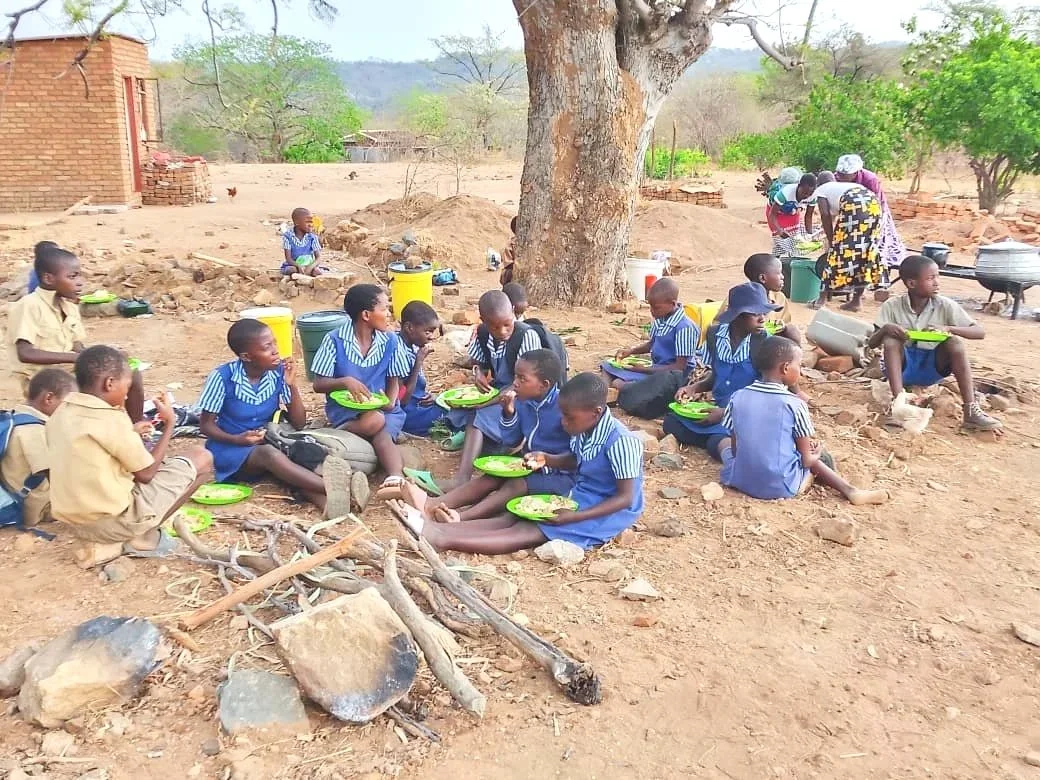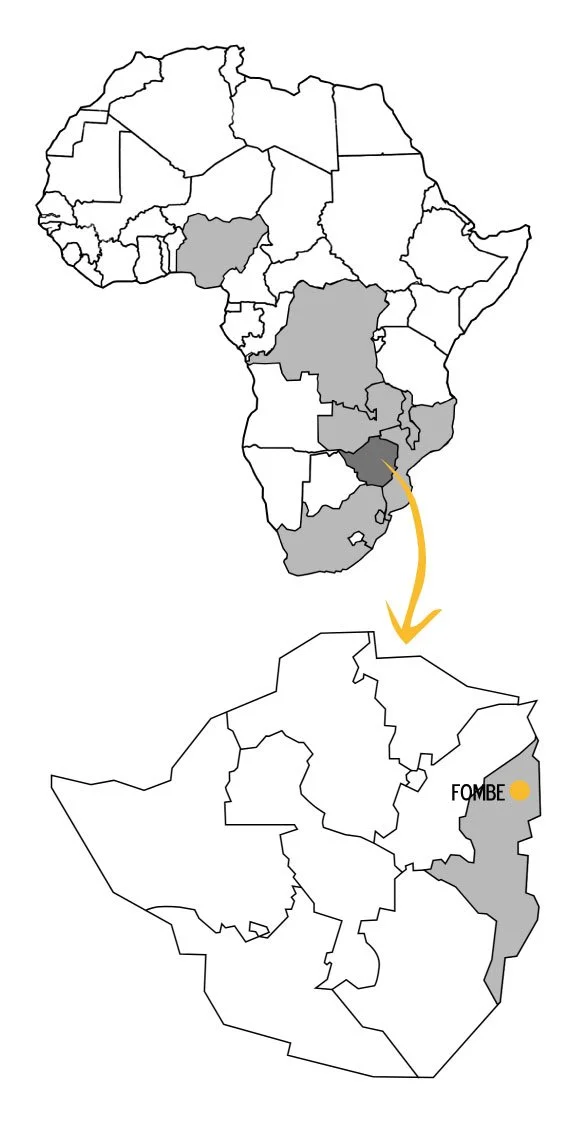The Story of Fombe Community
The community of Fombe is located on the northern side of the Nyanga district, in an area that borders the country of Mozambique. Prone to frequent drought because of its hot, dry climate and sporadic rains, people struggle to obtain a living through farming. The alternative to farming, whether crops or cattle and goat herding, is illegal gold panning along the Rwenya or Gairezi rivers. Because gold panning is illegal and not done with the right mining equipment or safety precautions, there are a lot of mud slides that result in many people getting trapped and killed underground. Sadly, the community no longer sees value in education and a lot of children refuse to go to school. Instead, they choose to pan for gold or be a vendor. For other communities closer to the river, they receive some sustenance from panning the river. Young girls marry early, especially those who may have found some gold and opt out of school. Many gold panners tend to move to where the gold is, leaving behind their children or young impregnated girls in a vulnerable state.
50 Children currently supported by 6 Care Workers
Basic Services Started in 2025
160 km from the Nyanga local Office
In 2024, Hands at Work leaders began hearing about the vulnerability in Fombe from various sources. Care Workers from Tsatse — a community where Hands at Work is already involved — who had visited relatives in Fombe started advocating for the vulnerable there. The social welfare department in the area encouraged Hands at Work to start visiting as they were looking for partners that would be willing to work there. Hearing their concerns, the Zimbabwe Regional Support Team (RST) and the local Hands at Work team in Nyanga started walking in Fombe in February 2025. As they walked in the community, meeting the families and connecting with local leaders, the vulnerability and desperation was evident.
The community of Fombe is a massive area, with many small villages. The local Hands at Work team in Nyanga, together with the Zimbabwe RST, identified three small villages as the most vulnerable where they would initially focus on. Two pastors and one community leader were identified as “men of peace”. Using their local knowledge and relationships, these men used their influence to open doors for Hands at Work to get to know the community and the vulnerable families. The two local pastors, Pastor Zaccheus and Pastor Simon, helped identify Care Workers from their churches and in the local community.
As the Zimbabwe RST, Nyanga team and newly-identified Care Workers visited families in the three villages, they identified 50 of the most vulnerable children in need of urgent care and support. In November 2025, the newly-named Hope Community Based Organisation began providing these children with the three essential services of food, education and basic healthcare.
From the beginning, it was challenging for the local Hands team to decide on the best location to start serving the children in Fombe. With the area being so large, the children would came from throughout these three villages. However, given that all the children attend the Chimusasa school, the Nyanga team decided to commence serving these 50 children initially near the school, enabling the children to pass by the Care Point after school, before embarking on their long walk home. Catching the vision, the council has given Hands at Work a plot of land. There is now access to a borehole dug by World Vision, which previously worked in the area but have since left.
In November, the Care Workers and local church leaders participated in a Foundations Training, where they gained a deeper understanding of the Hands at Work vision and the importance of doing Holy Home Visits and gathering for Relationship Groups.
The local Hands at Work team in the Nyanga currently supports two Community Based Organisation, which exists to care for the most vulnerable in the community. The office provides training, networking, and encouragement to those Community Based Organisations like Fombe. It also gives administrative support, including helping with funding proposals, monitoring and evaluation, bookkeeping and reporting to donors.












